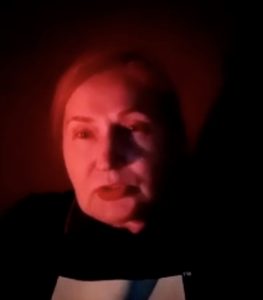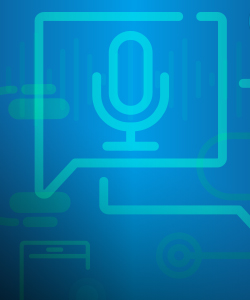May 4th, 2022
Podcast 289: Saline versus balanced crystalloids — what to choose
Saline or balanced crystalloids? The question of which resuscitation fluid to use in clinical practice seems to have been settled by recent research findings — or at least settled in favor of balanced crystalloids. But wait, our guests see slight differences that may affect your choice.
Patricia Kritek practices critical care medicine at the University of Washington. In this edition, she pilots a discussion with Todd Rice of Vanderbilt. He has studied the problem carefully, having published two studies in the New England Journal of Medicine in 2018; more recently, he’s written a meta-analysis of the problem in NEJM Evidence.
Listen in on a truly clinical conversation.
Podcast: Play in new window | Download
Subscribe: RSS
[Running time: 16 minutes]
April 21st, 2022
Podcast 288: Following up with a Ukrainian narcologist
Spend 15 minutes with Dr. Natalia Shevchuk, whom we interviewed by candlelight last month. She is sheltering in the Odessa region now, having left the Donetsk area.
This time, she relates how she lost a colleague in Russia’s attack on the Kramatorsk railway station and found another she’d feared lost in Mariupol. She told us that she’s impressed by her patients’ willingness to fight, despite their opioid dependence.
The narrative can be confusing at times, and following closely will require having a map of Ukraine handy. A technical glitch or two complicated things, but you’ll get the main idea: Ukraine needs help.
Podcast: Play in new window | Download
Subscribe: RSS
[Running time: 15 minutes]
April 10th, 2022
Podcast 287: Thinking about quality-of-life in migraine
Podcast: Play in new window | Download
Subscribe: RSS
During the American Academy of Neurology’s 2022 meeting in Seattle, Dr. Richard Lipton of Albert Einstein College of Medicine took questions from Dr. Teshamae Monteith (U. Miami) and Joe Elia.
Lipton’s group sought to characterize the impact of patients’ monthly headache days on their quality of life, especially the role of depression, allodynia, and anxiety. (Read the conference’s abstract here.)
[Listening time: 14 minutes]
Please leave a comment below to suggest how we can improve these interviews.
March 20th, 2022
Podcast 286: Talking about addiction treatment by candlelight from Ukraine’s Donetsk region

Podcast: Play in new window | Download
Subscribe: RSS
Dr. Natalia Shevchuk (pictured above) treats substance use disorders in Ukraine’s Donetsk region. Her face is candlelit because her town is under curfew, and people aren’t allowed to put on their room lights (if they have electricity) in the hours of darkness, lest Russian bombardments use the lights as guides.
She talked with Dr. Ali Raja and Joe Elia via Zoom about her work and her concerns for colleagues in Mariupol she’s not heard from for weeks. It’s wartime and nothing is running as usual.
But let her tell you all about that.
[Running time: 20 minutes]
March 10th, 2022
Podcast 285: GERD’s revised guidelines — an internist and a gastroenterologist discuss them.
Gastroesophageal reflux, or GERD, was the focus of a revised set of guidelines issued in January in the American Journal of Gastroenterology. Given the frequency of that condition in primary care clinics, internist and NEJM Journal Watch editor-in-chief Allan Brett proposed a discussion about the practical application of these guidelines with David Bjorkman. Dr. Bjorkman, a gastroenterologist, delivers much practical advice on the matter.
Podcast: Play in new window | Download
Subscribe: RSS
[Listening time: 24 minutes]
Journal Watch summary on the guidelines
American Journal of Gastroenterology containing the guidelines
March 8th, 2022
Podcast 284: The clinical situation in Ukraine
Podcast: Play in new window | Download
Subscribe: RSS
Some 85 years ago Guernica was bombed, and after that came Dresden, Coventry, Hiroshima, Bach Mai, and the rest. This episode of Clinical Conversations asks how it might be possible to help clinicians under bombardment in Ukraine. As you will hear, one hospital in Chernihiv keeps all but essential staff away from its buildings when they are not on duty — for fear of losing them to Russian attacks.
A neurologist in Chernihiv, Serhiy Kareta, and a Ukrainian American trauma surgeon based in Philadelphia, Roxolana Horbowyj, join the Mass. General’s Ali Raja and NEJM Group’s Joe Elia in a conversation about the clinical situation in Ukraine and what listeners can do to help.
Here is a link to the Ukraine Ministry of Health’s humanitarian needs list
[Running time: 20 minutes]
The views and opinions expressed in these blogs are not necessarily those of NEJM Journal Watch or NEJM Group.




